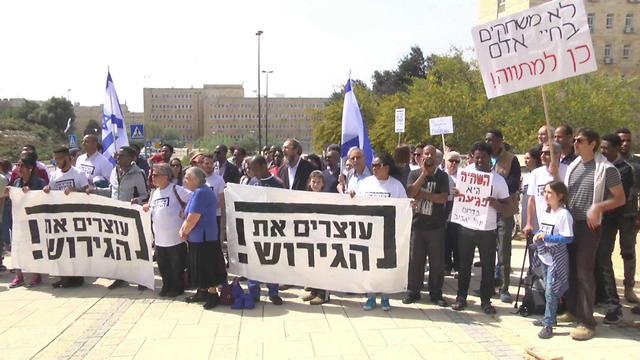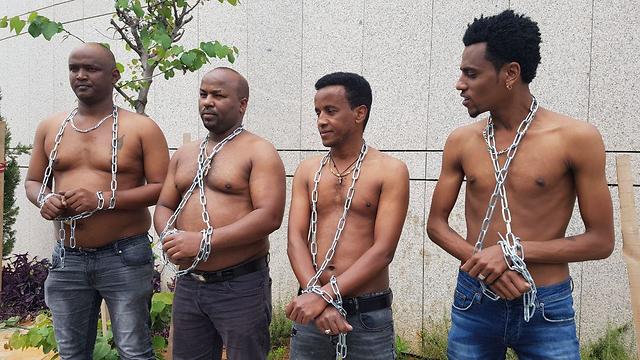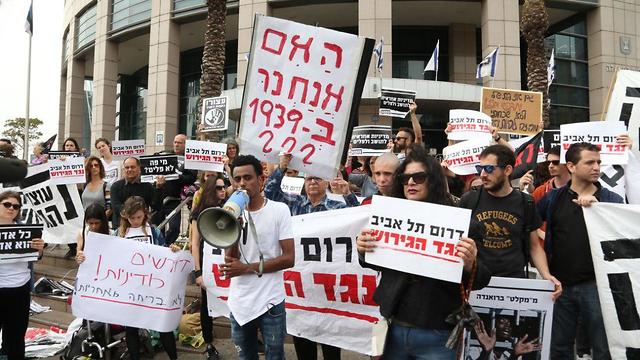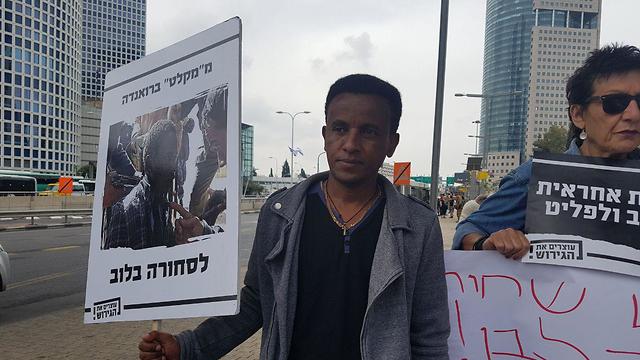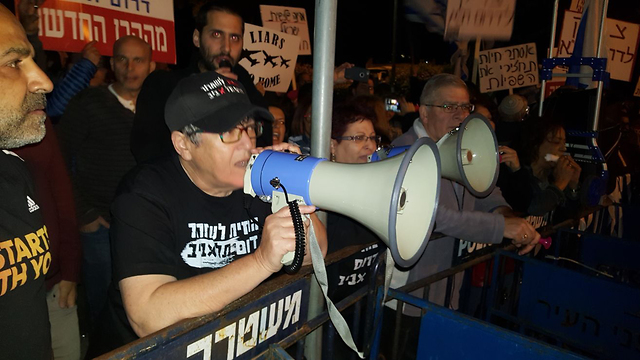

Activists renew anti-deportation protests as PM visits south Tel Aviv
Protesters rally in Jerusalem, Tel Aviv after Netanyahu suspends UN deal that would have replaced mass deportation program for illegal African migrants, and as he meets with local residents, enraged by slapdash cancellation of scheduled plan.
Infuriating many people in the area who had welcomed the controversial plan after he announced Monday night he had reached an agreement with the UN High Commissioner for Refugees (UNHCR) on the deportation of African immigrants, Netanyahu then announced he had suspended it just hours later, much to the dismay of the pro-migrant activists.
South Tel Aviv has been hardest hit by the influx of predominantly Sudanese and Eritrean migrants who crossed Israel’s once-porous southern border.
People advocating the deportation program were enraged by the indecision on what they believed was a sealed deal with Rwanda on the migrants, who were believed to have agreed to absorb them, but Netanyahu’s latest suspension of the UN agreement that would have seen different Western countries to take in at least 16,250 of the Sudanese and Eritrean asylum seekers nudged anti-deportation protesters to take to the streets yet again.
On Monday evening, Israel reached an agreement with the United Nations High Commission for Refugees to resolve the African migrants crisis, nixing the government's controversial mass deportation plan.
As part of short-lived deal with the UNHCR, within a year and a half, the first 6,000 asylum seekers will leave for Western countries, and within five years the remaining 10,250 will leave Israel.
According to a report by the Population and Immigration Authority concluding 2017, there are 34,187 asylum seekers from Sudan and Eritrea in Israel.
Protests took place outside the Prime Minister’s Office in Jerusalem and outside Finance Minister Moshe Kahlon’s home in Haifa, who had been among the coalition members expressing his disapproval of the UN agreement.
"However, I am attentive to you, and first and foremost to the residents of southern Tel Aviv," said in a video on Facebook in an attempt to pacify the expected backlash from his support base following the announcement on the UN agreement. "Therefore, I decided to meet, together with Interior Minister Aryeh Deri, with representatives of the residents of southern Tel Aviv tomorrow (Wednesday) morning.
"In the meantime, I am suspending the implementation of the agreement, and after I meet with the representatives, I will bring the agreement for a new examination."
Sheffi Paz, who leads the pro-deportation movement "South Tel Aviv Liberation Front" who began the meeting with Netanyahu and Deri at 11:00 am in Tel Aviv’s Kirya IDF headquarters, said that that she intended to discuss the matter seriously with the prime minister.
“We will sit with him and start thinking seriously, to erase everything and start afresh and see what we’re doing,” Paz told Ynet before the meeting. “But this time we want things that are feasible. (We will accept) no more unsubstantiated promises. We want have a real talk, without all sorts of secret agreements and and the UN-shmuem,” she said in a derisory tone for the UN.
"I have no idea how things will turn out but at the moment we hold the power here," she added.
The third country to which the migrants were set to be deported, Netanyahu said, did not withstand the pressure exerted on it.
In a post he wrote in his Facebook account, the premier explained that "in the last few weeks, following tremendous pressure on Rwanda by the New Israel Fund and elements in the European Union, Rwanda has withdrawn from the agreement and refused to absorb infiltrators from Israel who are forcibly removed. As a result, I decided to strive for a new agreement that would allow us to continue deporting the infiltrators.”
Rwanda, however, consistently denied the existence of such deal, insisting that it would not accept migrants that were removed by force. Following the announcement of the position, Israel’s High Court of Justice instructed the government to come up with a new solution, stating that it was illegal to deport asylum seekers to a country that refused to grant them entry or without their consent.















